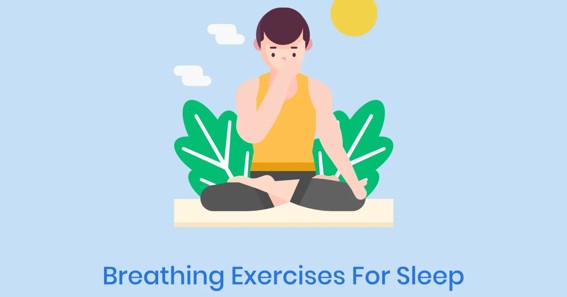If you want to get better sleep at night, try practicing mindful meditation. It works best when practiced regularly. The key to practicing mindfulness for sleep is to focus your attention in the present moment. This can be difficult at first, but once you learn the basics, you will have an easier time falling asleep at night.
Transcendental Meditation
Transcendental meditation has many benefits, including increased attention and memory. It is said to reduce stress, anxiety, and depression and enhance feelings of well-being. It has also been found to improve sleep. In one study, a group of people who practiced transcendental meditation showed greater brain connectivity than people who did not practice meditation.
There are many different techniques for practicing transcendental meditation. A good teacher can provide you with personalized attention and teach you the proper technique. Teachers have at least five months of training in the method, and they must maintain certification through continuing education. Some people may experience physical health problems as a result of transcendental meditation, but these are usually temporary. If you experience any side effects, try a different technique or talk to a mental health professional.
Transcendental meditation involves focusing on a mantra (a short word or phrase), or the sound “om.” Repetition of the mantra frees the mind of other thoughts and relieves stress. It also heightens awareness of the self. The practice of transcendental meditation usually takes about 15 minutes and should be done twice a day.
Click here – How To Find the Best Health Insurance Policy?
Transcendental meditation can be practiced at home. To begin, select a mantra, repeat it in a quiet, serene place, focusing only on the word. If you are busy, it may be helpful to set a timer so that you don’t have to worry about forgetting to meditate. Transcendental meditation is also considered as an effective healthy mechanism to deal with stress.
Studies have shown that around fifty million Americans suffer from troubled sleeping. The primary cause is the inability to turn off anxious thoughts. Meditation, and particularly mindfulness meditation, teaches people to stay in the moment. By practicing mindfulness, they are able to reduce the stress and anxiety that prevents them from falling asleep.
Transcendental meditation has many benefits, and it should be a part of your daily routine. The practice can be as simple as starting small with two or five minutes and increasing the time incrementally until you become accustomed to it. The more you practice, the more likely you are to get the results you desire.
Mindfulness Meditation
Mindfulness meditation has many benefits, including a reduced stress level and better sleep. It has also been found to improve personal growth and wisdom. Practicing meditation can improve your awareness of your everyday activities and improve your sensitivity to body sensations. It has been studied for its positive effects on health, including lowering blood pressure and reducing cortisol levels.
One study in older adults found that practicing mindfulness meditation improved sleep disturbance compared with the control group. This indicates that it may offer a viable alternative to traditional insomnia treatments. Researchers from the U.S. conducted an eight-week trial of mindfulness meditation and found that it had significant effects on insomnia and sleep disturbance.
A key aspect of mindfulness meditation is living in the present. Practices include paying attention to your breathing and the sensations around you. The practice also requires you to be patient and acknowledge your thoughts with kindness, recognizing that they are merely thoughts and not important. One approach is to imagine that your thoughts are like passing clouds and do not affect your body.
Several books and apps are available to teach you the basics of mindfulness meditation and sleep. There are also dozens of online courses. While many of these courses are based on general mindfulness principles, most are available for a fee. Dedicated therapy courses, however, can be expensive, so you should consider health insurance coverage and the national health service if you suffer from sleep problems.
One meta-analysis of randomized controlled trials found that mindfulness meditation improves sleep quality and reduces the number of nighttime awakenings. However, the results were inconsistent, ranging from no effect to a moderate positive effect. The study was limited by the low number of trials included, which made it difficult to separate nonspecific effects from the intervention.
Researchers in the Netherlands have found that meditation can help people improve their sleep quality of life. Several studies have shown that mindfulness can improve the quality of sleep in people who experience high stress levels. It can also be used to alleviate the negative effects of stress on the autonomic nervous system. This system controls our metabolism and blood pressure, and it can affect the level of creativity, clarity, and concentration we have. Meditation can also reduce oversleeping. Each of these factors affects productivity.
Conclusion
One of the key questions in the literature on the link between mindful meditation and sleep is whether the two are related. This integrative review explores the relationship between mindfulness practices and sleep. The conclusion is that, while meditation promotes healthy sleep and reduces stress, the two practices are not mutually exclusive.
Click here – How to make bulk thank you cards



